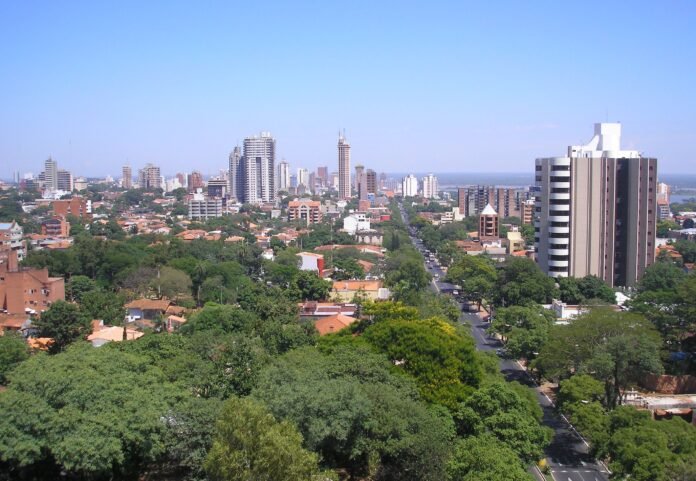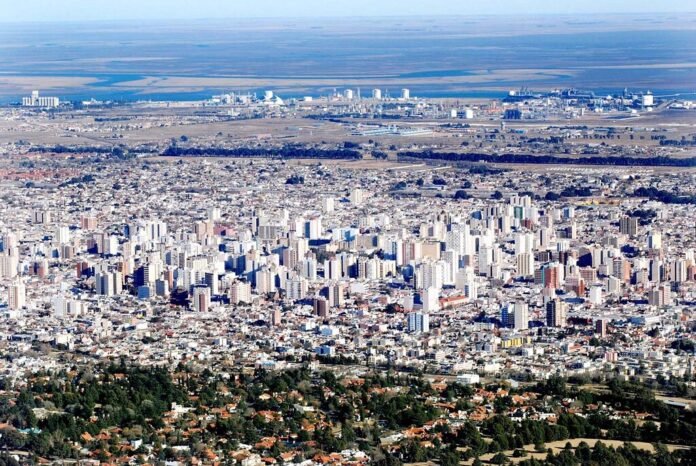Uruguay’s health system is robust, offering both public and private insurance that ensures almost universal coverage. It combines accessibility with high-quality care. Here’s a look at the key differences and similarities between Uruguay’s public and private health insurance.
Public Health Insurance in Uruguay
Uruguay’s public healthcare, managed by the Administración de los Servicios de Salud del Estado (ASSE), is funded by taxes and mandatory contributions from workers and employers. It ensures universal access, serving around 37% of the population, mainly low-income and vulnerable groups.
- Coverage and Services:
ASSE provides comprehensive services like primary care, specialist visits, hospital stays, emergency care, and some specialized treatments. Public health insurance is free or has low co-pays for those eligible. - Accessibility:
All legal residents, regardless of income, have equal access to healthcare. - Limitations:
Public facilities often face longer wait times and outdated infrastructure compared to private ones. Bureaucratic challenges can hinder service efficiency. - Funding:
The public system, funded by the state budget, worker and employer contributions, and general taxes, focuses on universal coverage rather than profit.
Private Health Insurance in Uruguay
Mutualistas, like CASMU and Médica Uruguaya, are non-profit health cooperatives representing the private sector, serving 56% of people. They offer private insurance through membership fees, granting access to private clinics and hospitals.
- Coverage and Services:
Private plans include consultations, diagnostics, hospitalization, maternity, preventive care, and often extras like dental and wellness programs. Facilities are typically modern, with reduced wait times. - Accessibility:
Primarily utilized by middle- and high-income earners, expatriates, and formally employed individuals who contribute to FONASA, Uruguay’s national health fund that supports private memberships. Enrollment typically demands Uruguayan residency and occasionally health assessments. - Costs:
Monthly fees vary from $100 to over $250 per person, based on age and coverage, with additional co-payments for certain services. - Funding:
Funded mainly by monthly fees and co-payments, with some support from FONASA for formal workers.
Similarities
- Comprehensive Coverage: Both sectors provide comprehensive healthcare, ranging from primary care to hospitalization and specialized treatments.
- Universal Intent: They offer almost universal health coverage, supported by FONASA’s subsidy system.
- Government Role: The state crucially funds and regulates public and private insurance to ensure quality and access.
- Focus on Prevention: Both systems focus on prevention, maternal health, and managing chronic diseases.
Differences
| Aspect | Public Insurance (ASSE) | Private Insurance (Mutualistas) |
| Population Covered | Primarily low-income, vulnerable (~37%) | Middle/high income, expats (~56%) |
| Cost to User | Free or low-cost with minimal co-pays | Monthly fees $100–$250+, plus co-payments |
| Facilities | Public hospitals/clinics; older infrastructure | Modern private hospitals/clinics |
| Wait Times | Longer due to high demand | Generally shorter wait times |
| Funding Source | Taxes, employer/worker contributions | Membership fees, co-pays, subsidized by FONASA |
| Enrollment | Automatic for residents and vulnerable groups | Requires membership application and eligibility |
Top Public Health Insurances in Uruguay
Uruguay’s public health insurance system is centralized, offering wide healthcare access to residents. Unlike countries with multiple public insurers, Uruguay primarily depends on one main public health provider, supplemented by specialized plans.
1. Administración de los Servicios de Salud del Estado (ASSE)(Official Website: https://www.asse.com.uy/)
- Cost:
Government funds ASSE services via taxes and social security contributions from employers and employees. Care is free or involves minimal co-payments, particularly for low-income individuals. - Available Services/Coverage Features:
ASSE offers a wide array of services: primary healthcare, specialist consultations, hospitalization, emergency care, diagnostic tests, maternal and child care, and chronic disease management. - Open for All or Limited:
ASSE provides healthcare to all legal residents of Uruguay, focusing on low-income and vulnerable groups. It covers around 37% of the population, primarily those without private insurance. - Core Financial Features:
Funded mainly by taxes and required social security contributions, the system is non-profit. Beneficiaries don’t pay premiums directly, except for small co-pays in some cases. ASSE runs public hospitals and clinics. - Consumer Satisfaction Score:
ASSE ensures everyone can access services, but users have varied experiences. Many report moderate to low satisfaction because of long waits, overcrowding, and infrastructure issues. Surveys show satisfaction scores between 55% and 65%, with demands for faster service and better facilities.
2. Fondo Nacional de Salud (FONASA)(Official Website: https://www.msp.gub.uy/portal/page/portal/PORTAL_MSP/Servicios/FONASA)
- Cost:
FONASA, a public health fund, is financed by mandatory worker and employer contributions, around 4.5% of salaries. It subsidizes healthcare by supporting private mutualista memberships and indirectly aids public services. - Available Services/Coverage Features:
FONASA covers a wide range of healthcare services: primary care, specialist visits, hospital stays, surgeries, maternity, and preventive care. - Open for All or Limited:
FONASA provides universal coverage for formally employed individuals and retirees, reaching about 90% of the population. Self-employed and informal workers can opt to contribute voluntarily. - Core Financial Features:
As a social health fund, it collects contributions and distributes subsidies, lowering personal expenses by supporting mutualista memberships and services. - Consumer Satisfaction Score:
Formal workers generally express satisfaction with subsidized private care, with over 70% approval. They enjoy better access and shorter wait times compared to ASSE.
3. Healthcare Providers for Armed Forces and Police
- Cost:
Funded by government allocations specific to military and police personnel. - Available Services/Coverage Features:
Provides customized health insurance plans, featuring specialized clinics and hospitals for armed forces and police members and their families. Services are similar to the public system but include extra resources. - Open for All or Limited:
Only military, police, and their families, making up about 5% of the population, have access. - Core Financial Features:
Government-funded, no direct user premiums, with emphasis on exclusive services. - Consumer Satisfaction Score:
Healthcare satisfaction is typically higher than the general public’s due to specialized facilities and prioritized care, with over 75% satisfaction reported.
4. Public Health Programs under the Ministry of Public Health (MSP)
- Cost:
Free or low-cost services funded by the national budget. - Available Services/Coverage Features:
Nationwide efforts encompass vaccination drives, maternal and child health programs, health education, and disease prevention initiatives. - Open for All or Limited:
Open to the entire population regardless of insurance status. - Core Financial Features:
Funded through government allocations focused on public health priorities. - Consumer Satisfaction Score:
Outreach and prevention services are generally well-received; accessibility satisfaction is high, but program implementation satisfaction varies.
5. Regional and Municipal Health Services
- Cost:
Financed by local government budgets, free or nominal fees. - Available Services/Coverage Features:
Provide primary care, basic diagnostics, and emergency care at regional or municipal clinics. - Open for All or Limited:
Open to residents of respective regions, aiming to increase healthcare access in rural and underserved areas. - Core Financial Features:
Local government-funded, designed to complement national programs. - Consumer Satisfaction Score:
Mixed feedback due to resource limitations but valued for local accessibility.
Top 5 Private Health Insurances in Uruguay
Uruguay’s private health insurance is mainly provided by Mutualistas, which are non-profit healthcare cooperatives. They offer comprehensive health plans through monthly fees, known as “cuotas.” These organizations are the primary private insurers and are essential for delivering quicker and better-quality care than the public sector:
1. CASMU (Centro de Asistencia del Sindicato Médico del Uruguay)(Official Website: https://casmu.com.uy/)
- Cost:
Monthly fees generally start around USD 100 for basic plans, increasing with age and coverage options, often ranging up to USD 250+. - Available Services/Coverage Features:
Complete medical care covers primary care, specialist visits, diagnostic tests, hospital stays, surgeries, maternity services, preventive measures, dental care, and rehabilitation. - Open for All or Limited:
Open to Uruguayan residents with proof of residency and enrollment. No strict health exclusions, but some waiting periods may apply. - Core Financial Features:
Funded by monthly fees and co-payments for some services. Membership often subsidized by FONASA for employed individuals. - Consumer Satisfaction Score:
CASMU is esteemed, with satisfaction rates often exceeding 80%, lauded for excellent care, state-of-the-art facilities, and skilled staff.
2. Médica Uruguaya(Official Website: https://www.medicauruguaya.com.uy/)
- Cost:
Monthly fees start near USD 90–120 and increase based on age and plan tier, with co-payments applicable. - Available Services/Coverage Features:
Provides diverse services such as outpatient care, specialists, hospital stays, maternity, preventive services, and emergency care. - Open for All or Limited:
Available to residents; requires enrollment with identification and residency proof. - Core Financial Features:
Revenue is generated through member fees and co-pays, often benefiting from FONASA subsidies for eligible members. - Consumer Satisfaction Score:
Rated highly for accessibility and range of services, with satisfaction levels around 75-80%.
3. Hospital Británico Mutualista(Official Website: https://www.hospitalbritanico.org.uy/)
- Cost:
Membership fees begin at USD 110 and increase with extra coverage and age. - Available Services/Coverage Features:
Comprehensive healthcare services encompass specialized medical treatment, diagnostics, hospital stays, surgeries, and outpatient care. - Open for All or Limited:
Open to residents, with straightforward enrollment procedures. - Core Financial Features:
Funded by cuotas and patient co-payments. Mutualist model emphasizes non-profit care. - Consumer Satisfaction Score:
Known for excellent patient care and facilities, satisfaction scores hover near 85%.
4. SMI (Sociedad Médico Interna)(Official Website: https://www.smi.com.uy/)
- Cost:
Starts around USD 95 monthly for basic coverage, increasing for wider plans. - Available Services/Coverage Features:
Complete healthcare, including dental, specialist visits, hospital stays, preventive measures, and emergency care. - Open for All or Limited:
Open to Uruguayan residents with proof of residence. - Core Financial Features:
Membership fees and treatment copayments are backed by FONASA subsidies. - Consumer Satisfaction Score:
Recognized for quality service and personalized care, with satisfaction around 75%.
5. Círculo Católico de Obreros(Official Website: https://www.circulocatolico.com.uy/)
- Cost:
Fees vary, starting approximately at USD 100 monthly. - Available Services/Coverage Features:
Covers outpatient care, hospital services, specialist consultations, maternity, preventive care, and diagnostics. - Open for All or Limited:
Residency status is required; enrollment is straightforward. - Core Financial Features:
Supported by member fees and shared costs, functioning as a cooperative. - Consumer Satisfaction Score:
Feedback is mostly positive, with satisfaction around 70-75%, appreciated for community-focused services.
READ MORE: Private and public health insurance of Paraguay (Make informed choices)


